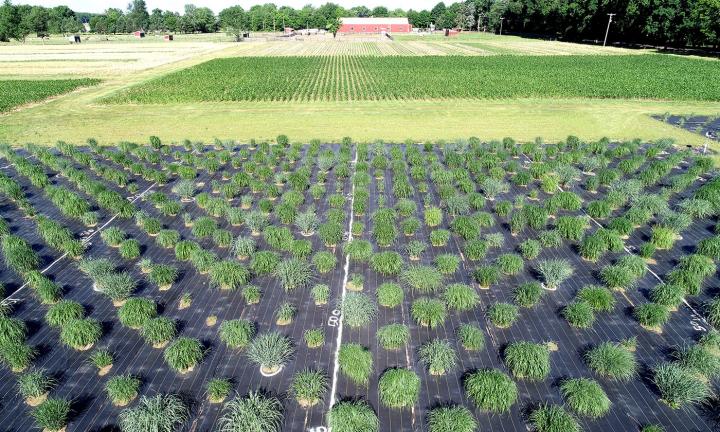
Credit: Robert Goodwin, Michigan State University
AUSTIN, Texas — A team of scientists from nine universities and research facilities hope to find out how to make switchgrass — a fast-growing perennial native to the U.S. — into a biofuel powerhouse.
It’s part of new project from the U.S. Department of Energy. In nature, switchgrass sequesters carbon underground in its roots, produces cellulose that can be used to make ethanol and typically grows in soils that are unsuitable for food crops — all characteristics that make it a great candidate for biofuel. Current biofuels come primarily from agricultural crops or feedstocks such as corn, and that fact is part of the reason they can meet only a small fraction of domestic energy demands.
Tom Juenger, a professor of integrative biology at The University of Texas at Ausitn who has been studying different types of switchgrass over the past decade, will lead the research team.
“In 2007, the United States set a goal of having 36 billion gallons of biofuel production by 2022,” Juenger said. “Using current biofuels to meet that goal would put pressure on the global food supply and require more water, fertilizer and other energy inputs compared to switchgrass.”
The team has developed various switchgrass plants that were transplanted at 10 field sites in multiple states, from coastal South Texas to the Great Plains of South Dakota. Having the same plants growing at these sites allows researchers to consider how the plant’s genes interact with the environment and discover genes involved in specific traits, such as biomass production, with the aid of a method called quantitative trait locus (QTL) mapping.
The effort has identified a number of important traits, candidate genes and potentially beneficial root microbes for improving switchgrass — given evidence that plants’ bacterial communities play an important role in their growth. The new funding will extend this research with both field and lab studies, in collaboration with Ulrich Mueller, also a UT Austin professor of integrative biology, who will study switchgrass-microbe interactions to optimize root microbial communities.
This new round of funding will allow Juenger and his fellow researchers to genetically engineer different types of switchgrass to be better at producing biofuel. The process will take advantage of the best traits of the species and remove any genetic downsides. Researchers plan to develop general switchgrass types that can grow just about anywhere, as well as special types that can grow in specific, targeted areas. These types of switchgrass will be engineered to maximize crop yield, stress tolerance and carbon sequestration based on natural alleles, or gene variants, involved in local adaptation.
“One of the most exciting aspects of our project is the diverse research perspectives on the team — a group that includes ecologists, evolutionary biologists, genomic and data scientists, microbial ecologists, physiologists and plant breeders,” Juenger said. “The broad perspectives provided by the team have been critical for developing creative solutions to improving switchgrass.”
The new $13 million grant includes more than $11 million for UT Austin and additional funding to support research by partners at HudsonAlpha Institute for Biotechnology, the University of Missouri-Columbia, Michigan State University, Washington State University, Texas A&M University, the USDA Agricultural Research Service, the University of Florida, South Dakota State University, the Argonne National Laboratory and others.
###
Media Contact
Esther Robards-Forbes
[email protected]
Original Source
https:/




